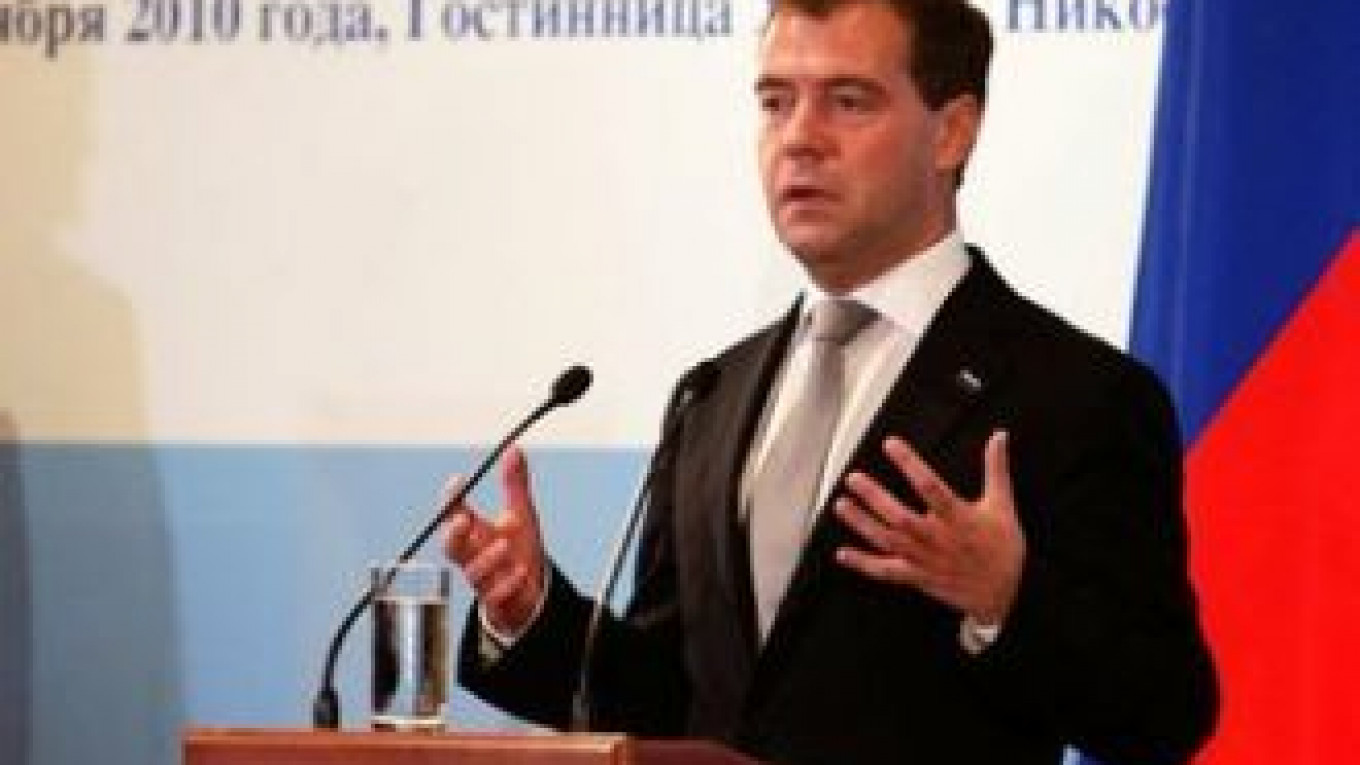Cash-strapped Cyprus needs the equivalent of 10 percent of its GDP to recapitalize its second-largest bank by June 30. Its financing options include a European Union bailout, a Russian loan or a combination of the two.
“A political approach was made [to Russia], and we are expecting a response,” the Cypriot official said late last week on condition of anonymity.
Russian Deputy Finance Minister Sergei Storchak told reporters earlier that Russia had not received any request for financial help from Cyprus, which hosts hundreds of Russian firms and banks. He later said any bid would be considered.
“If they approach us, we will look into it. I have not yet seen them approach us. There is only talk in newspapers,” Storchak told journalists on the sidelines of the economic forum in St. Petersburg.
Storchak signed off on a 2.5 billion euro ($3.14 billion) bilateral Russian loan to Cyprus in December.
But Cypriot officials said the issue was still open.
“An application has been made, no doubt about it,” the Cypriot official said, declining to comment further.
Local media say Cyprus’s contacts with Russia are directed by President Demetris Christofias, a Russian-educated politician who is the only communist head of state in the European Union.
Cyprus, with a GDP worth about 17.5 billion euros, must find 1.8 billion euros — cash it doesn’t have — to recapitalize lender Cyprus Popular by the end of next week.
It has appeared reluctant to borrow from the EU bailout fund, the EFSF, for fear of strings attached and potentially unpopular fiscal austerity eight months before a general election. However, it has not ruled that option out.
Popular took a heavy 2.3 billion euro loss on the write-down in the value of Greek bonds in its portfolio, depleting its regulatory capital. Unless it finds the funds privately, the state must step in.
Cyprus was shut out of international capital markets when yields on its benchmark bonds climbed to unaffordable levels in May 2011. The yield on its 10-year benchmark was quoted at 15.86 percent Thursday.
A Message from The Moscow Times:
Dear readers,
We are facing unprecedented challenges. Russia's Prosecutor General's Office has designated The Moscow Times as an "undesirable" organization, criminalizing our work and putting our staff at risk of prosecution. This follows our earlier unjust labeling as a "foreign agent."
These actions are direct attempts to silence independent journalism in Russia. The authorities claim our work "discredits the decisions of the Russian leadership." We see things differently: we strive to provide accurate, unbiased reporting on Russia.
We, the journalists of The Moscow Times, refuse to be silenced. But to continue our work, we need your help.
Your support, no matter how small, makes a world of difference. If you can, please support us monthly starting from just $2. It's quick to set up, and every contribution makes a significant impact.
By supporting The Moscow Times, you're defending open, independent journalism in the face of repression. Thank you for standing with us.
Remind me later.






